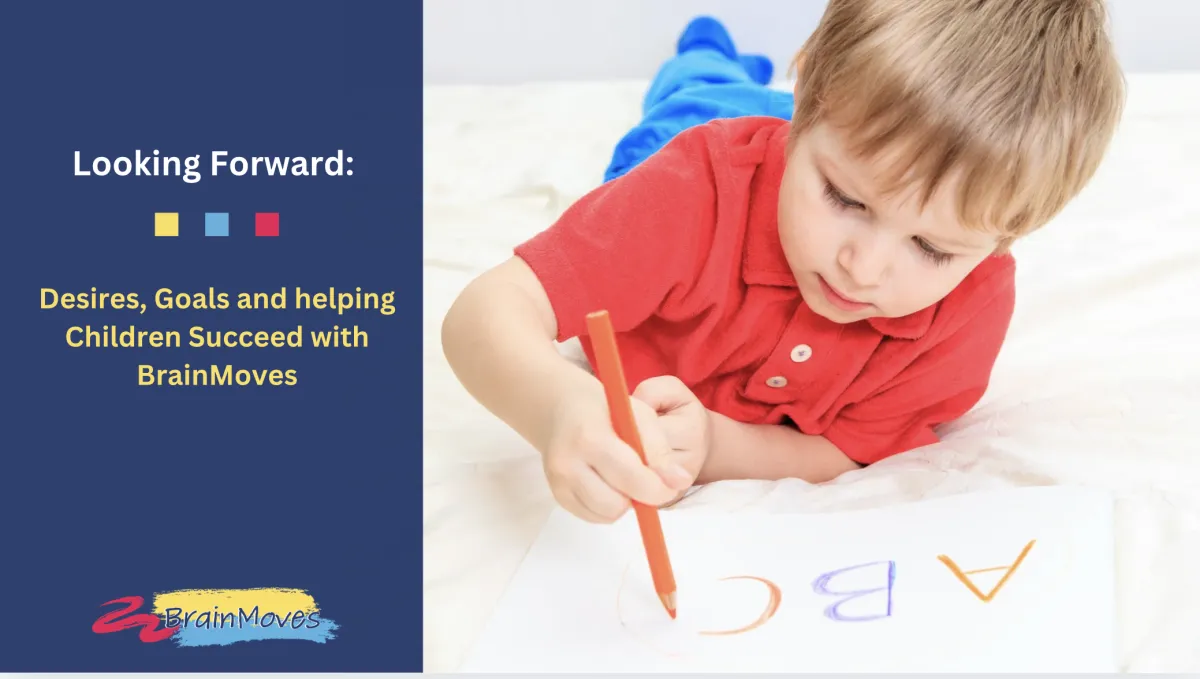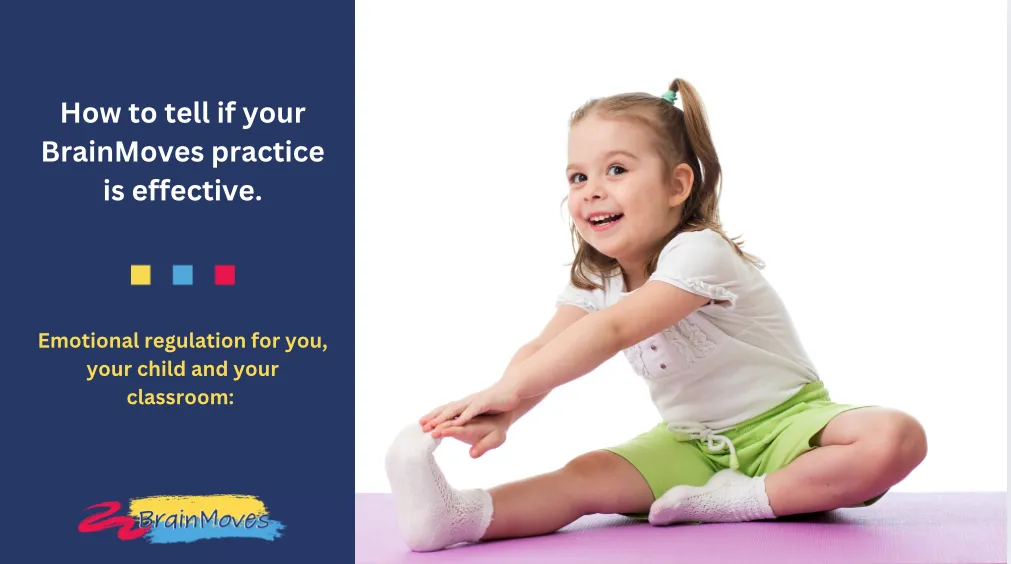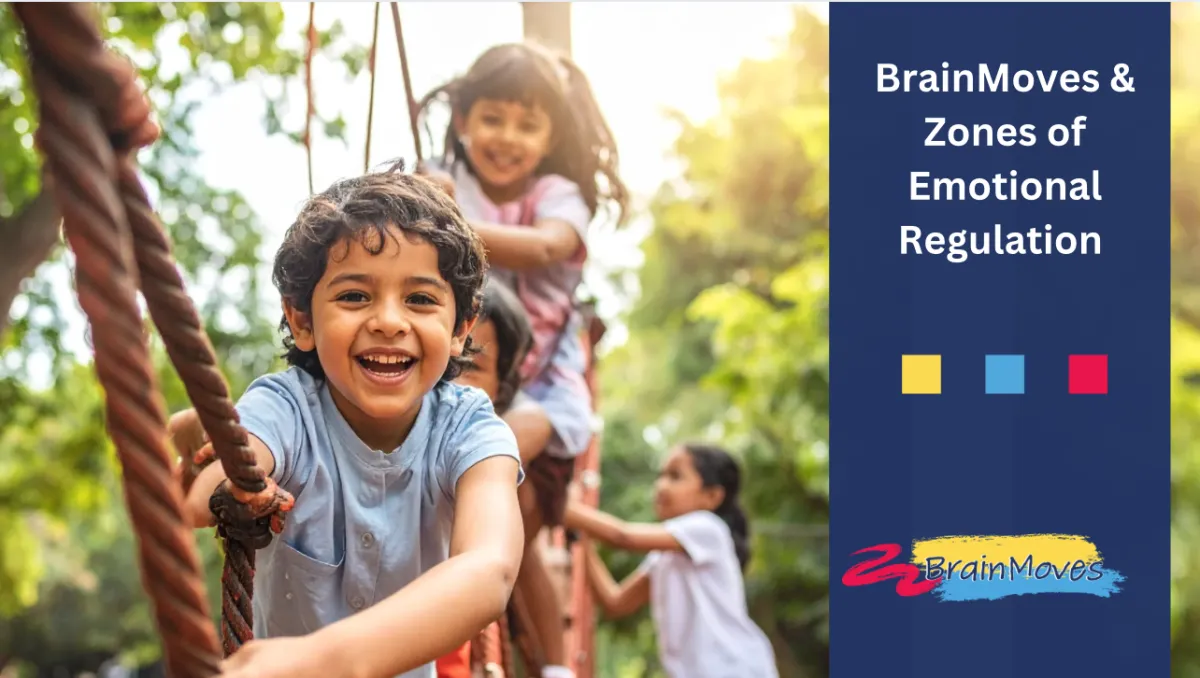Looking Forward: Desires, Goals and helping Children Succeed with BrainMoves
Today, we're going to talk about behavior improvement and resolutions. It seems like a great topic for a 2026 blog post. The very formal idea of New Year’s resolutions can be either positive or negative for adults. Some people treat resolutions with perfectionism, only to feel the side effects of not achieving sometimes unreasonable goals. Others are energized and focused by the idea of having two or three things upon which to concentrate their energy. Both of these are very adult understandings of resolutions. Yet we also have things we’d like to see improve for the young people in our lives, so this seems like a good time to talk about resolutions or goals for preschoolers and kindergartners and how they relate to BrainMoves.
Emotional regulation for you, your child and your classroom: How to tell if your BrainMoves practice is effective
Today, we will take a dive into emotional regulation and how to determine if someone is emotionally regulated or simply shut down. We will define what a regulated individual looks like and discuss how to measure somatic regulation before and after doing a BrainMoves movement. Let’s start by defining what emotional regulation looks like. Is a regulated individual someone who doesn't feel emotions strongly? Can a regulated individual have outbursts of excitement or strong feelings? To be emotionally regulated is not to be devoid of feeling, but rather to experience a balanced range of emotions.
BrainMoves and the Holidays
The Holidays are full of delights and dramas. Schedules are upended, family and friends visit and are welcomed. School days are filled with holiday events and over-stimulated, sugar-filled kids. The holidays affect EVERYTHING: schedules, food, sleep, work, and playtime. You may also find yourselves visiting people more often, resulting in more waking and active hours. When you’re an adult, you can clearly communicate your schedules and anticipate upcoming events. However, when you’re a child, you are responsive to the decisions of adults. If your child also has hyperactivity, attention deficit, or sensory sensitivities, it can be an especially overstimulating time of year, no matter how much you love the candy, the lights, the presents, and all of that shiny stuff. Here are a couple of tips to help everyone—neurodiverse people, young and old, children, mothers, fathers, and anyone who’s going to experience the holiday season...
Emotional Regulation & BrainMoves
On the BrainMoves blog, we often talk about feeling more focused, more peaceful, more content, and more able to learn. A frequent topic of conversation among educators, parents, and those interested in neurodiversity is the concept of emotional regulation. Like many terms that have searchability, emotional regulation runs the risk of becoming clickbait and is not frequently defined. Emotional regulation means developing emotions that are fully formed and can be identified, but are not extreme. It means that when an individual feels they’re reaching one of the polar edges of their emotional experience, they can bring themselves back to center. This can be done through grounding activities, motions, and movements. At its core, BrainMoves is all about emotional regulation and integrating the physical and mental experience. This is the reason why BrainMoves is so incredibly useful for preschoolers and kindergarteners, who sometimes lack the ability to express how they’re feeling except through their behavior.






